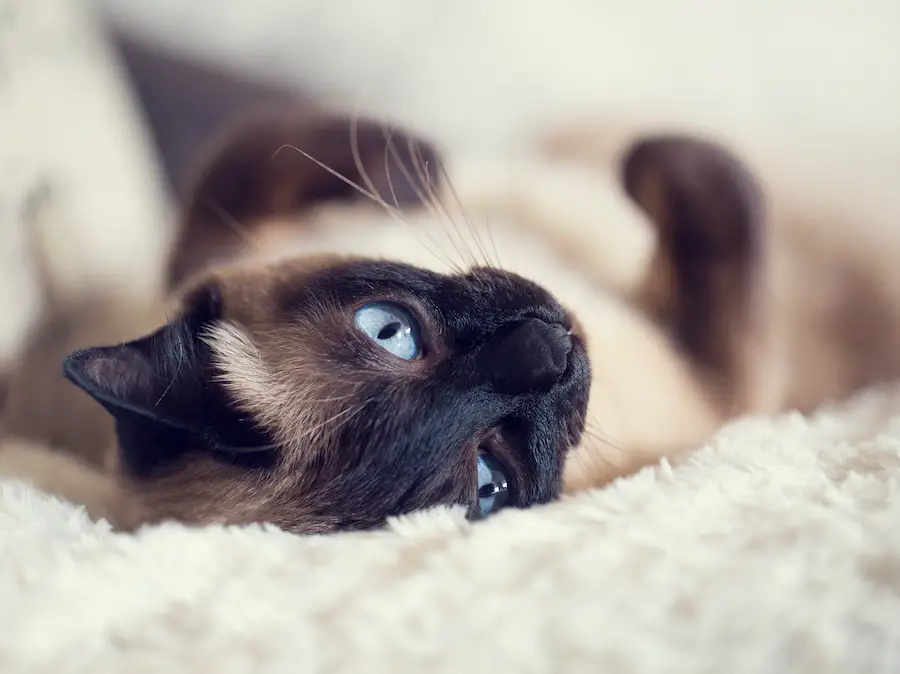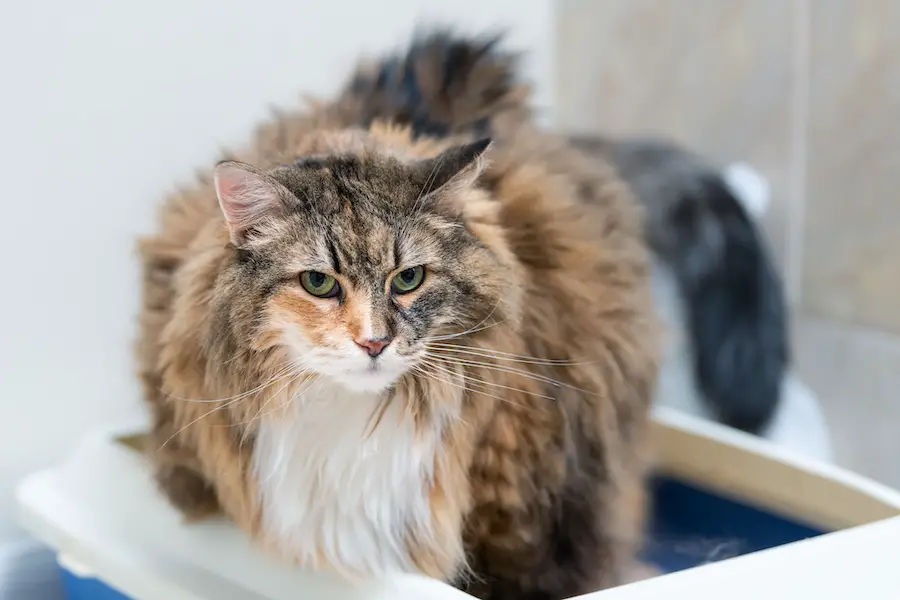Megacolon is a condition that affects the large intestine in cats. The large intestine is responsible for absorbing water and nutrients from food and eliminating waste products from the body. When the large intestine becomes enlarged and non-functional, usually due to nerve issues, it can cause a variety of symptoms including constipation, vomiting, dehydration, and weight loss. In some cases, megacolon can be fatal if left untreated. In this article, we will discuss what you need to know about megacolon in cats.
There are two types of megacolon in cats, congenital megacolon and acquired megacolon. Congenital megacolon is a birth defect that affects the large intestine, and acquired megacolon occurs when the large intestine becomes damaged or diseased. Megacolon can affect any breed of cat, but it is most common in Siamese cats and Manx cats.
Symptoms
The symptoms of megacolon in cats can vary depending on the severity of the condition. Some of the most common symptoms include:
- Constipation
- Vomiting
- Weight loss
- Dehydration, and
- Lethargy
If your cat is showing any of these symptoms, it is important to take them to the vet for an evaluation as soon as possible.
What causes megacolon in cats?
The exact cause of megacolon is unknown, but several factors may contribute to the development of the condition. These include genetic defects, intestinal blockages, and inflammatory bowel disease. Other causes can include spinal cord injury, as well as an obstruction caused by a tumor, foreign body, hairball, or stricture.
Which cat breeds are more susceptible to getting megacolon?
Siamese cats and Manx cats are more susceptible to megacolon than other breeds of cats. This is due to their anatomy, which makes them more prone to developing the condition. Other breeds of cats that may be at increased risk for megacolon include Persian cats, Himalayan cats, and Maine Coon cats.

How is megacolon diagnosed?
Your vet will start by taking a thorough history and performing a physical examination. They may also recommend some diagnostic tests including x-rays, blood work, and stool samples. These tests will help to rule out other conditions and confirm the diagnosis of megacolon.
How is megacolon treated?
The treatment for megacolon in cats will vary depending on the severity of the condition. In some cases, treatment may be as simple as adding fiber to your cat’s diet or giving them over-the-counter laxatives. If megacolon is more severe, your vet may recommend surgery to remove the affected portion of the intestine. In severe cases, your cat may need to be hospitalized for supportive care.
Do megacolon symptoms go away with treatment?
The severity of megacolon symptoms can vary and in some cases, the symptoms may go away with treatment. However, megacolon is a chronic condition that typically requires lifelong management.
What is the prognosis for cats with megacolon?
The prognosis for cats with megacolon depends on the underlying cause and the severity of the condition. In some cases, megacolon can be fatal if left untreated. However, with proper treatment, many cats can live normal, happy lives.
If you think your cat may have megacolon, it is important to take them to the vet as soon as possible for an evaluation. With proper treatment, many cats can live normal, happy lives.
